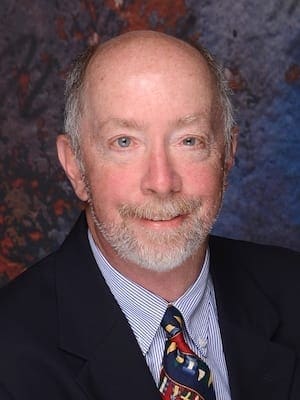I still remember the growing sense of freedom as I headed south down Interstate 71 with our minivan loaded for vacation – my wife and young sons securely buckled in – leaving my church and the attendant responsibilities behind for a while.
I enjoyed pastoring my people and felt called to that congregation, but it felt liberating to leave it in the rearview mirror for a week or so.
A pastor is never really “off.” She or he is always one phone call away from being “on.”
In those days, telephones were connected together by wires. One could get away briefly on a walk in the woods, a meal in a restaurant or shopping for groceries – unless you met a church member in the produce aisle who wanted to talk about the noisy teens in the balcony.
To reach me on vacation, a member had to overcome their natural resistance to disturb my holiday and invest in the added expense of a long-distance call. You had to pay extra back then, for those of you who do not remember the old days.
In our day of cellphones, there is no such escape. You are always one ring away from a call, a text or an email.
The expectation is that the pastor is always available. People call it the electronic leash. Being in a movie theatre is about the only legitimate excuse for not responding.
Pastors need time “off” the communication grid. This is what we call a boundary issue.
Healthy pastors set boundaries in their lives that enable them to maintain their emotional, physical and spiritual health so that when they are “on,” they bring the best they have to the situation.
After teaching the crowds, Jesus went off to be alone (Matthew 14:22-23). Even Jesus needed time “off” so that he could bring the best he had to give when he was “on.”
How can pastors and congregations ensure that the pastor is ready to do their best work when needed?
The expectation that pastors will respond to emails, texts and phone calls seven-days-a-week, 16-hours-a-day is not healthy for pastors and does not encourage church members to honor good boundaries.
I suggest pastors and church leaders talk about this, maybe even develop a policy.
The policy could stipulate that during weekdays from 8:30 a.m. to 5 p.m., the pastor will monitor and respond to emails and texts and phone calls.
At other times, if you have an urgent need, you will need to call the pastor; the pastor will not be monitoring emails and texts all the time.
Pastors also need at least one full day a week away from church responsibilities, a day to observe the biblically mandated Sabbath. The pastor and church leaders can choose a day of the week as a pastoral Sabbath.
When there is an emergency on that Sabbath day to which the pastor must respond, the pastor is instructed to take another day in its place.
In this way, when the pastor is “on,” they are bringing the best they have to give to their ministry.
Some pastors may find themselves resisting this boundary. That is something to think about.
In our day of constant distractions by TV, radio, videos, social media, cellphones and work, we are rarely alone with our thoughts.
We may find the downtime uncomfortable; absent distraction, we may need to grapple with things we would rather avoid.
Jesus went off into the desert alone and struggled with difficult issues that needed to be settled (Matthew 4:1-11).
Having successfully decided some basic things in the solitude, he was free to give himself fully to God’s calling in his life.
On the other hand, sometimes pastors resist taking a Sabbath because we believe the ministry cannot survive one day without our attention.
I suspect God can manage the kingdom one day a week without our help. It is, after all, God’s church.
I encourage pastors and church leaders to think through how the digital age has affected ministry and how we can preserve the health and effectiveness of our pastors in this new day so that they might bring the best they have to ministry.
Editor’s note: A version of this article first appeared on Kelsey’s blog, I’m Just Saying. It is used with permission.


